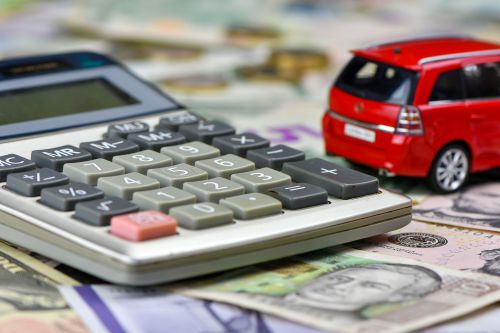Last updated: May 02 2024
Buying a Car in 2024: Will it be Deductible?

It’s springtime and for some that may mean a new car! One of the most common deductions for self-employed individuals, certain employees who negotiate contracts on behalf of their employers, and employed commission salespeople, is the deduction for Auto Expenses. They are also amongst the most frequently audited. There have been some changes to the rules for claiming these expenses in 2024. Some details follow.
What expenses are claimable? The deduction for auto expenses may include:
- fuel and oil;
- maintenance and repairs;
- insurance;
- licence and registration fees;
- capital cost allowance (CCA);
- eligible interest you paid on a loan used to buy the motor vehicle; and
- eligible leasing costs
However, for some automobiles, these costs are restricted.
Passenger Vehicles (sometimes called luxury vehicles) are vehicles designed to carry no more than nine passengers. These vehicles are subject to restrictions when claiming CCA, interest,  leasing costs. They are placed in Class 10.1 to claim CCA properly.
leasing costs. They are placed in Class 10.1 to claim CCA properly.
Motor vehicles are vehicles that are not passenger vehicles, and they are place in Class 10 for CCA purposes. They are also not subject to the leasing and interest cost restrictions. The following types of vehicles, which may be designed to carry no more than nine passengers, are specifically excluded from the definition of passenger vehicles:
- Ambulances
- Taxis
- Busses used in the business of transporting passengers
- Hearses and other vehicles used in the transport of passengers in the course of a funeral
- any clearly marked emergency medical vehicle which is used to transport paramedics and their emergency medical equipment
- Motor vehicles acquired to be sold, rented or leased
- Pick up trucks that are used more than 50% of the time to transport goods
- Vans that are used more than 90% of the time to transport goods
- Extended cab pick-up trucks used primarily for the transportation of goods, equipment or passengers in the course of earning or producing income at a worksite at least 30 kilometres from any community having a population of at least 40,000
Accelerated Investment Incentive Properties (AIIP)
In the November 21, 2018 Fall Economic Statement, changes were introduced to accelerate first-year capital cost allowance claims to spur capital investments by business. This included provisions for automobiles. Unfortunately these provisions will be phased out after 2023.
Note:
For most capital assets – (except class 53: manufacturing and processing machinery and equipment and classes 43.1 and 43.2: clean energy equipment):
- First-year claims will be tripled for purchases between November 20, 2018, and December 31, 2023.
- The property must be acquired after November 2018 and put available for use by December 31, 2027.
- This provision can only be claimed in the first year the property becomes available for us.
- Rather than restricting the claim to 50% of the normal Capital Cost Allowance (CCA) claim (half-year rule), the claim will be 150% of the normal CCA claim.
- For purchases in years 2024 to 2027, the half-year rule for acquisitions will be suspended and where the half-year rule does not apply, the claim will be 125% of the normal claim.
- For purchase after 2027 the regular rules for claiming CCA will apply, as described above.
The AIIP provisions will not change the total that can be deducted over the lifetime of the property but rather provides for a larger CCA deduction in the year of acquisition. This means the deduction will be smaller in future years. Therefore careful planning is required to ensure claiming CCA under this option is the correct choice. CCA is always claimed at the taxpayer’s option. It may be that in some cases, claiming under the regular rules is the best way to go, depending on income level.
Short Tax Years. Properties that are eligible for the AIIP are also subject to the “short tax year” rule. This means that the CCA that can be claimed is prorated if the tax year is less than 12 months long, for example in cases where a business starts in the year.
